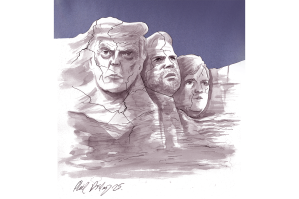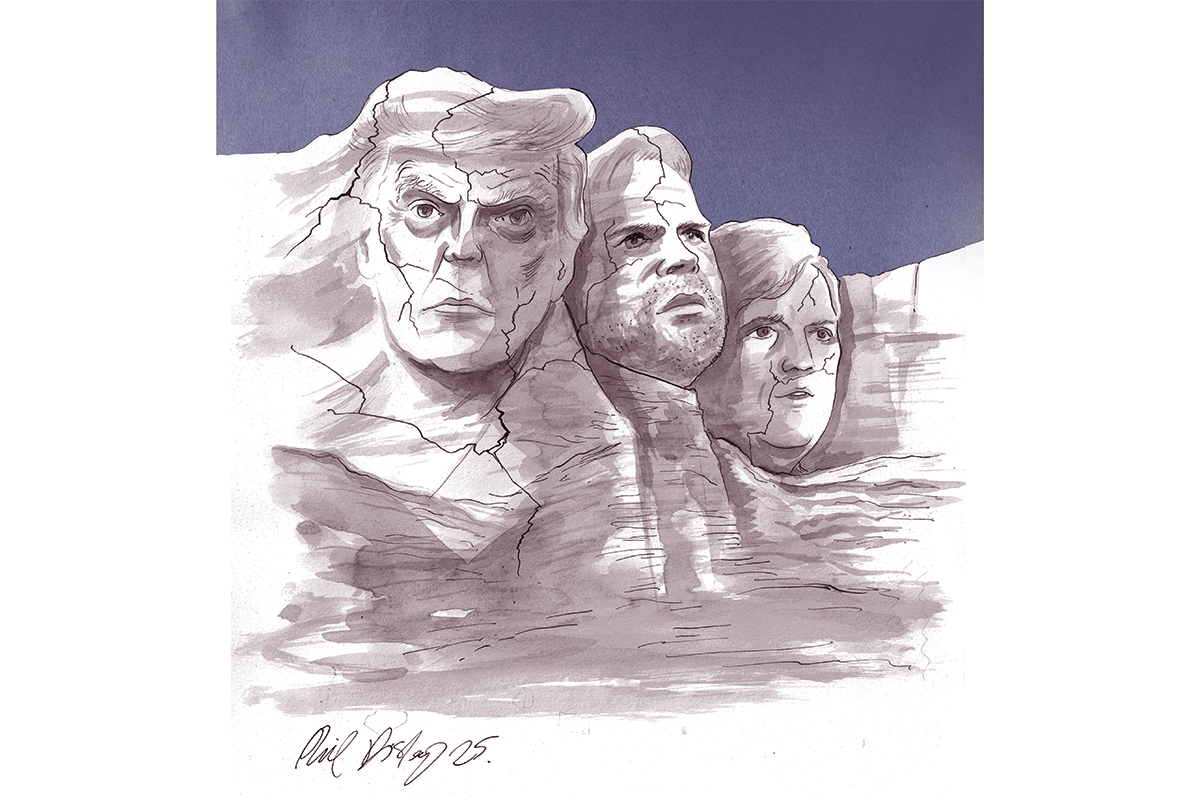It’s often noted that American society is becoming ever more politicized and polarized. Those who once imagined themselves uninterested in politics find themselves dragged into America’s culture wars. Small children now carry placards and attend political marches. Max Horder and Danit Sara Finkelstein explain the extent to which social media has played a part in this growing radicalism, not just because of the ideological echo chambers we now inhabit, but due to the mindset online algorithms create: rewarding outrage, encouraging extremism. Nuance and balance are anathema; shock and division set each day’s tone.
Now, however, we have become so used to seeing events through the prism of politics that, when news of an atrocity breaks, Americans of every stripe scour the internet for evidence that the other side is responsible. There are still those on the left who insist Tyler Robinson, who allegedly murdered Charlie Kirk at Utah Valley University, was far right – a “groyper” or follower of the alt-right commentator Nick Fuentes. After every shooting, Democrats blame the guns. Republicans blame the DEI insanity.
The good news, perhaps, is that times are changing
But as Katherine Dee explains in our cover story, there’s another conflict playing out across America, more significant than MAGA versus antifa or the progressive left versus the GOP. The culture war has become a spiritual war. A nation built on faith in God has become nihilistic and lost its way.
In The Screwtape Letters, C.S. Lewis conjures a young devil, Wormwood, sent from Hell to secure the damnation of a man known as “the patient.” His uncle, Screwtape, a senior devil, sends him a letter of advice. “Dear Wormwood,” he writes. “Be sure that the patient remains completely fixated on politics. Arguments, political gossip and obsessing on the faults of people they have never met serves as an excellent distraction from advancing in personal virtue, character and the things the patient can control. Make sure to keep the patient in a constant state of angst, frustration and general disdain towards the rest of the human race in order to avoid any kind of charity or inner peace from further developing.”
If America is particularly in the Devil’s sights right now, the signs of his progress are, in the first place, this fixation on politics and in the second, the terrible absence of inner peace, particularly in our children. Consider the trans shooter Robert Westman. A few days before his attack on Annunciation Catholic School in Minneapolis, he reportedly put a gun to the head of his girlfriend, (who was said to identify as a “furry”), and felt an icy revulsion, no pity or remorse at the thought of murdering her.
Lionel Shriver presents the reasonable view, that we should not obsess on the motives of young shooters; that they’re simply psychotic anomalies. But these were once normal children, raised by loving families. In a letter to family and friends, Westman says: “I feel I was raised to be a good person… I was corrupted by this world and have learned to hate what life is.”
What American children are being corrupted by is not just progressive ideology, but exposure to diabolical horrors via the internet. By his own mother’s account, Tyler Robinson was chronically online from an early age and what he experienced there may have been what eventually led him to kill.
Offline, the culture that surrounds young Americans offers little alternative. The institutions which should affirm the value of Christian civilization instead pump out neo-Marxist ideas and glorify violence.
But the good news, perhaps, is that times are changing. Increasingly, people who aren’t ideologically opposed to religion understand that it’s the language of faith, not politics, that best explains what is happening in the hearts and minds of young people such as Robinson and Westman. Until very recently, it would have seemed strange, even in America, the West’s most explicitly Christian nation, for public figures to talk in metaphysical terms of Good and Evil; Christ and Satan. But in Silicon Valley, among the people who create the spaces of the online universe, it’s become normal for the most powerful men on the planet to discuss the reality of demons and of actual evil. Luke Lyman explains how and why Peter Thiel, one of the richest and most influential men in the world, has become obsessed with the idea of the Antichrist.
Earlier this month, protesters actually dressed as demons gathered on the steps of the Embarcadero building in San Francisco to protest a series of lectures given by Thiel on the subject of the Antichrist. He will comment on “theology, history, literature, and politics of the Antichrist… drawing on René Girard, Francis Bacon, Jonathan Swift, Carl Schmitt and John Henry Newman,” says the advertisement for the lectures.
But the remedy for America’s spiritual decline isn’t more discussion or engagement online. Screwtape ends his letter to his nephew like this: “Ensure that the patient continues to believe that the problem is ‘out there’ in the ‘broken system’ rather than recognizing there is a problem with himself.”
The right answer, is to actually practice, not just preach, Christianity. Charlie Kirk, a devout young man, understood this well. The Trump administration should encourage not a fiery MAGA response but a return to church.


























Leave a Reply